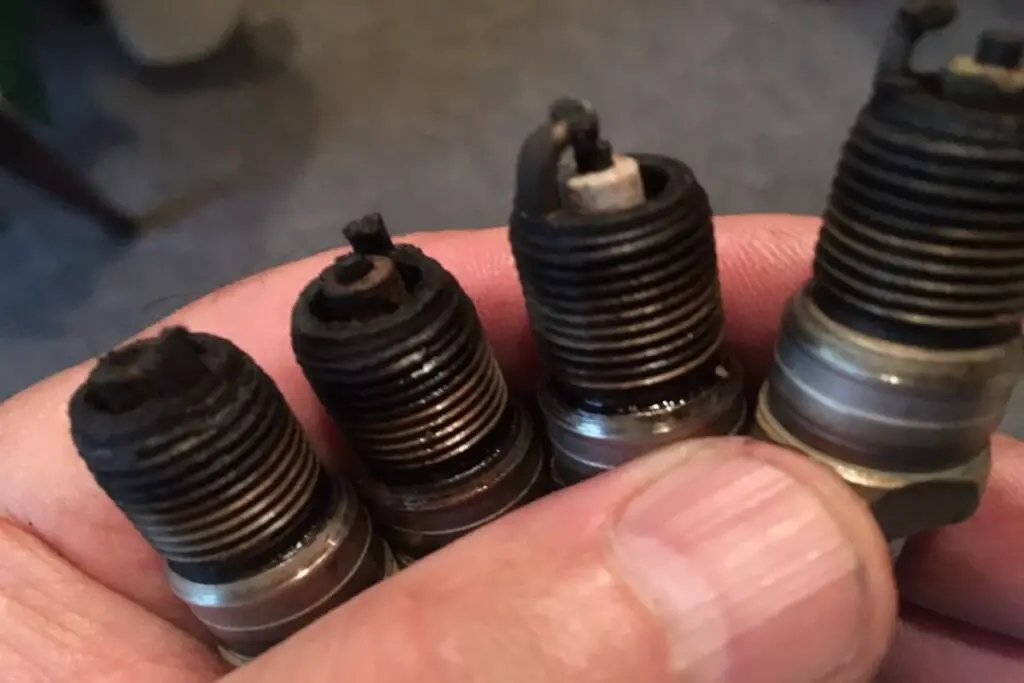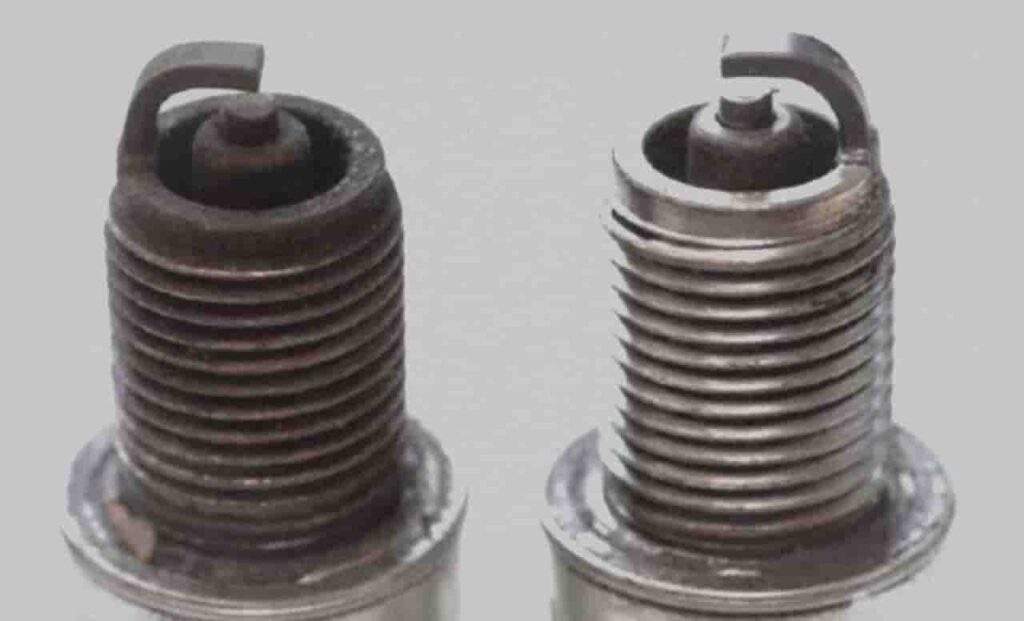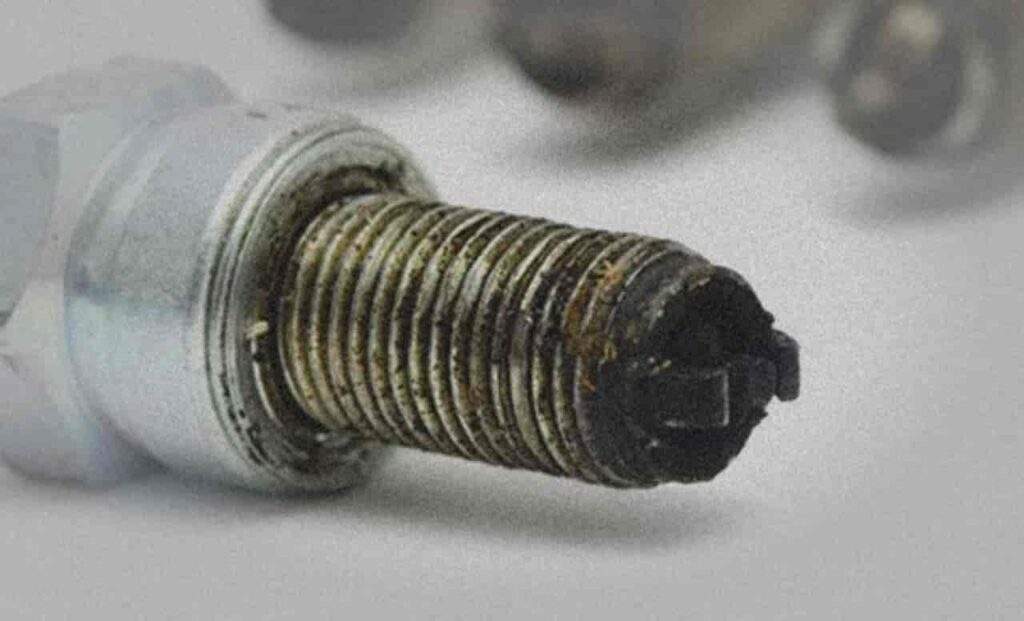As an Amazon Associate, we earn from qualifying purchases. This does not affect the price you pay or the quality of the products you buy. For more information, please read the full affiliate disclosure here.
Spark plugs are one of the crucial components of engines such as generators, cars, and mowers among others. Without a spark plug your engine won’t crank and at the same time won’t start especially if you are using a burnt spark plug.
A burnt spark plug occurs when your engine overheats, the spark plug has carbon buildup, or you are using the incorrect spark plug heat rate for your engines, and many more.
As a result, how do you know if your spark plugs are burnt? What happens when spark plugs get burnt? Will they affect your engine performance or not? If they did affect its performance, how can you fix this issue?
In this blog post, we will answer all these questions and more. keep on reading as we unveil the answers.
How Can You Identity Burnt Spark Plugs?
Before we further explain the reasons why spark plugs get burnt, it is important you first know the signs, so you can identify the issue immediately before it gets worse. Besides, here are some ways you can identify burnt spark plugs.
1. Difficulties Starting Your Engine
Having difficulties starting your engine is one of the common signs you will identify when having a spark plug that got burnt or it is about to burn out from the engine’s cylinder.
This shows that the spark plugs are no longer functioning and need changing. That is to say, even if you clean the spark plugs and fix them back without knowing the causes and fixing them adequately, the engine will still have difficulties starting.
2. Engine Misfiring
Apart from your engine having difficulties starting, you might also experience misfiring. if you are using generator, you will see fire blowing out from your exhaust, or the exhaust will be very hot.
When the engine misfires this way, it happens whenever the spark plug fails to ignite the fuel in the combustion chamber, resulting in reduced power and increased emission.
3. Rough Idle
Thirdly, your engine runs properly as it might happen that your engine will be unevenly and at the same time vibrating excessively without control due to the previous signs mentioned above; misfiring and poor combustion.
4. Discoloration
When spark plugs are discolored, it is a sign that you are using an incorrect heat range as the electrode or the ceramic insulator of the spark plug might have changed color due to being too hot or too cold.
If the discoloration is caused by being too hot, then your spark plug is burned out and can’t be used anymore unless you replace it with a new one using the right heat range.
5. Melted Electrodes
Lastly, if the electrodes or the metal tip of the spark plugs are melted or have broken off due to excessive heat, then your spark plugs have burnt out. This usually happens if your engine is overheating.
Important Notice
If you observe any of these symptoms, refrain from immediately replacing the spark plug; instead, take the time to identify the underlying causes, address them, and only proceed to replace the burnt spark plugs once you have resolved the root issues.
What Causes Spark Plugs to Burn?

Knowing the symptoms without the causes isn’t right because even if you change the spark plug, the issue is likely to happen again. Moreover, we have listed some reasons the spark plugs got burnt out earlier without a deeper explanation. Nonetheless, here are the reasons why spark plugs burn out.
1. Overheating
Overheating happens when the spark plug gap or electrodes get too hot due to prolonged exposure to high temperatures and engine revs. Generally, it can be caused by too much fuel or air entering the combustion chamber, an incorrect spark plug heat range being used, or a build-up of carbon deposits on the electrodes due to incomplete combustion.
2. Carbon Buildup
Carbon buildup just like overheating occurs whenever the fuel is not fully burned during the combustion process, leaving behind carbon deposits that insulate the heat and prevent proper electrical current from flowing through the electrode gaps and into the combustion chamber. Just like we said earlier, it can also cause overheating and eventually lead to spark plug burnout if left unchecked for too long.
3. Oil Contamination
Thirdly, oil contamination can also cause your spark plug to get burnt out. it happens whenever the oil from leaking valves, gaskets, or seals enters the cylinder head and coats the spark plugs with oil. When this happens, it prevents electricity from passing through the spark plug electrodes and at the same time, causes the spark plug to burn out.
4. Incorrect Spark Plug Heat Range
Earlier, we said discoloration is caused by a cold or hot heat range. and if it is hot, means the spark plug is burned out. The heat range of a spark plug on the other hand determines how much heat it can dissipate without burning out. So, if you use the wrong heat range, the spark plug may be unable to dissipate enough heat, overheat, and become damaged burning out.
5. Incorrect Spark Plug Gap
Lastly, spark plugs are designed with a specific gap size which determines how large the electrical current needs to be for it to ignite fuel in the combustion chamber. All engines have their spark plug gap recommended the the manufacturers themselves. so, if the spark plug you are using gap is too wide or too narrow or not what the manufacturer of your engine recommends, then the spark plug may not work properly and cause misfires, poor combustion, or overheating resulting in burning out.
How to Fix and Prevent Burnt Spark Plugs?
The best way to fix and prevent burnt spark plugs is to replace them with new ones that match your engine’s specifications. You can check your owner’s manual or consult a mechanic to find out the correct spark plug type, heat range, and gap size for your engine. If you are looking for a spark plug gap for your generator, you can check this article here.
Additionally, apart from the spark plug gap, you should also inspect the spark plug wires, coils, and ignition system for any signs of damage or wear, and replace them if necessary.
But how can you prevent this issue from happening after fixing the cause and as well replace the spark plug? Here are some things you should do:
1. Maintain a proper air-fuel ratio: You can do this by keeping your air filter clean, checking your fuel injectors for leaks or clogs, and using good quality fuel that meets your engine’s requirements.
2. Avoid overheating your engine: You can do this by not over running your engine, avoiding excessive idling, and using the right engine oil and coolant for your engine.
3. Clean your spark plugs regularly: You can do this by using a wire brush or a spark plug cleaner to remove any carbon deposits or oil residue from the electrodes and gaps. You should also check the spark plug gap and adjust it if needed.
Parting Words
Spark plugs are essential for all engines, but they can become burnt due to various reasons, affecting engine performance and efficiency. By knowing what causes spark plugs to burn, how to identify the symptoms of burnt spark plugs, and how to fix and prevent them from happening again, you can keep your engine running smoothly and safely. If you have any questions or need any help with your spark plugs, feel free to contact us.
Share


